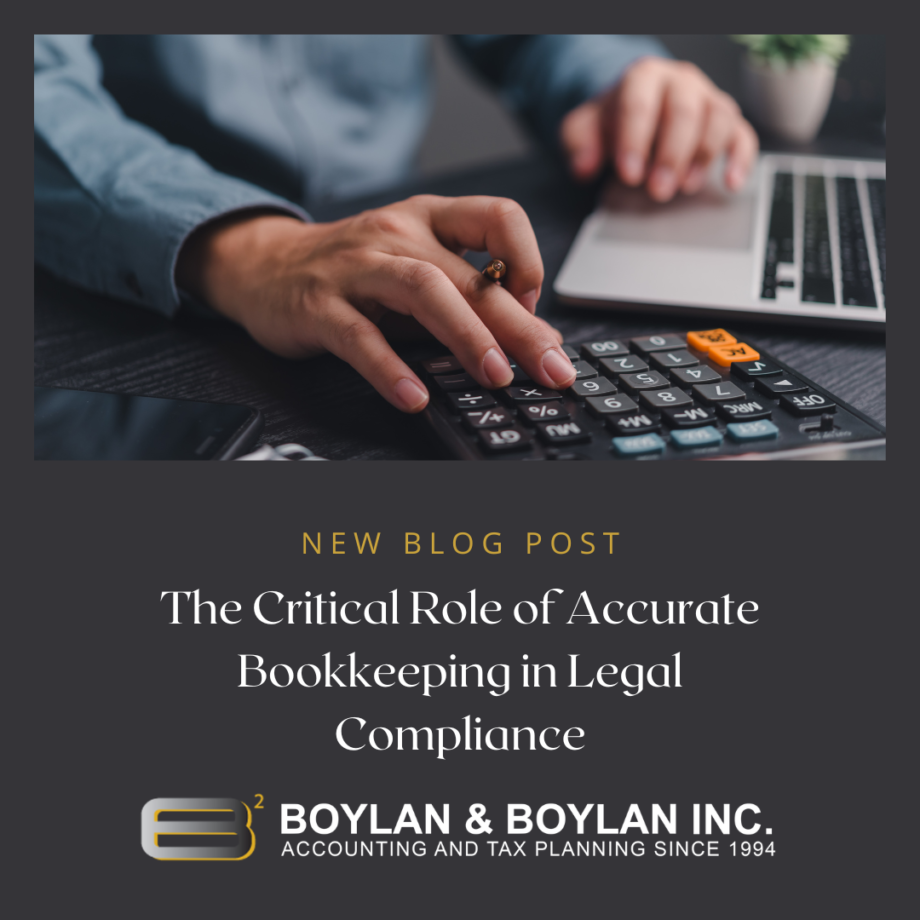In the complex world of business management, maintaining accurate books is not just a matter of internal housekeeping—it’s a critical foundation for legal compliance and business success. For companies of all sizes, the accuracy of bookkeeping can determine both operational efficacy and legal standing. Particularly for businesses leveraging services from firms like Boylan and Boylan, understanding the intersection of bookkeeping with legal compliance is essential.
The Backbone of Business: Understanding Bookkeeping’s Legal Stakes
Bookkeeping goes beyond mere number crunching. It involves the systematic recording of financial transactions, which is foundational for reliable financial statements. These records are crucial for several reasons:
- Tax Obligations: Accurate financial records are necessary to meet tax commitments under the law. Misreported earnings can lead to severe penalties from underpayment, irrespective of intent.
- Regulatory Compliance: Various industries are subject to specific regulations that dictate financial practices. Accurate books ensure that businesses adhere to such regulations, avoiding legal issues that might arise from non-compliance.
Why Every Business Should Prioritize Accurate Bookkeeping
Risk Management: Faulty bookkeeping can expose businesses to significant legal risks. For example, inaccurate expense tracking can lead to wrongful tax deductions claims, potentially triggering tax audits. Such risks can escalate to financial penalties or more severe legal consequences.
Informed Decision-Making: Accurate records provide a clear picture of a business’s financial health, guiding better decision-making. Leaders rely on financial reports derived from bookkeeping to strategize on everything from budget allocations to growth strategies.
Financial Integrity and Trust: For small businesses, in particular, financial integrity helps in building trust with stakeholders, including lenders, investors, and partners. Accurate bookkeeping communicates reliability and professionalism, critical for sustaining long-term business relationships.
Integrating Technology for Compliance
In today’s digital age, bookkeeping has transcended traditional methods, with technologies like QuickBooks revolutionizing the process. Here’s how integrating such technologies aids in compliance:
- Automated Records: Software solutions reduce human error by automating entries and calculations, ensuring higher accuracy.
- Real-time Reporting: Advanced bookkeeping software provides real-time insights into financial data, aiding in swift compliance and reporting.
- Secure Data Management: Digital bookkeeping solutions offer secure data management, protecting sensitive financial information and ensuring compliance with data protection laws.
Boylan and Boylan: Your Partner in Ensuring Compliance Through Accurate Bookkeeping
Boylan and Boylan offer comprehensive bookkeeping services that cater to the specific needs of businesses aiming for compliance and excellence. Here’s how they can help:
- Tailored Bookkeeping Services: From setup to continuous management, Boylan and Boylan tailor their services to meet your business’s unique requirements, ensuring compliance every step of the way.
- Expert Guidance: Their team of experts is not just skilled in managing books but also in interpreting financial data to ensure compliance with current tax laws and industry-specific regulations.
- Strategic Tax Planning: With a proactive approach, they assist businesses in planning their taxes efficiently, avoiding common pitfalls that could lead to legal issues.
Conclusion
Accurate bookkeeping is not optional but a central aspect of business management that significantly impacts legal compliance. With the stakes so high, partnering with seasoned professionals like Boylan and Boylan can provide the expertise and peace of mind that business owners need. Remember, in business, the accuracy of your financial records directly correlates with your ability to comply with laws and regulations, safeguarding your company’s future and reputation.

